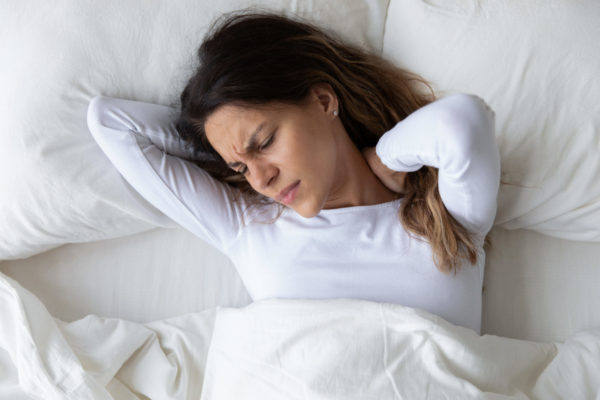
Pillow talk: dozens of pillows promise you a pain-free night’s sleep. Some claim to relieve neck pain. Others say they align the spine. Many of these pillows are expensive. But do they really work? The answer is: It depends. Many factors determine the effectiveness of a pillow in reducing pain and improving sleep. These include
- the part of your body that hurts-different style pillows are marketed to reduce neck, lower back or knee pain
- your specific condition-let us evaluate why you are hurting
- the position you sleep in-about 70% of people are side sleepers; the other 30% are back or stomach sleepers
- the material the pillow is made of-feathers, foam, contoured foam, polyester or latex
- the age of the pillow-some materials break down faster than others
In an Australian experiment, side sleepers used various types of pillows for one week each and reported their waking symptoms. Latex pillows most effectively prevented morning neck pain. Feather pillows consistently performed the worst, and there was no difference between regular foam pillows and contour foam pillows. This experiment applied only to side sleepers, but it indicates that pillow choice matters.
In addition, with our aging population, cervical spine issues are becoming more common. As physical therapists, we are often asked about pillow and what the “best” pillow is. Before you shop, we can help you understand the origin of your pain and the body mechanics involved, and assure you that fixing one sleep-pain problem will not cause a different one. Try the pillow in the store and be sure you can return it. When you get home, before you unwrap it, try the pillow again until you are sure it is comfortable. If not take it back. If you are in doubt about the effect of a particular pillow on your pain, bring it to us for an evaluation.
When we determine the source of your pain, we can help you select an appropriate pillow so you can get a refreshing night’s sleep.
